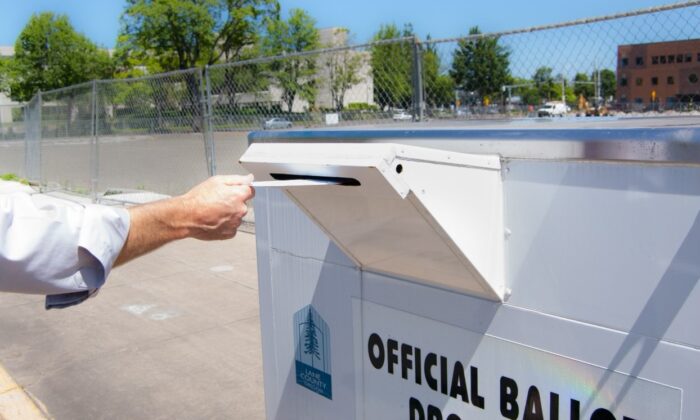
More than 1.1 million Oregon voters had already cast their ballots heading into Election Day. As of Nov.
4, the Oregon Secretary of State’s office shows that more than 46 percent of the state’s more than 3 million registered voters had returned their ballots. Those numbers include 56.1 percent of the state’s 1 million registered Democrats, 60.

6 percent of the almost 743,000 registered Republicans, and 28.4 percent received from 1.1 million nonaffiliated voters.
Election officials anticipated high voter turnout. More than 2.3 million ballots were cast in the 2020 general election, yielding a final turnout of 78.
5 percent in the vote-by-mail state. In addition to indicating their choice for president, Oregonians are voting on three congressional races that could decide control of the U.S.
House as well as three statewide executive offices, including secretary of state, treasurer, and attorney general. Tom Tullis, a 61-year-old contractor who lives in the state’s 5th Congressional District, found the ranked-choice voting ballot measure “quite confusing.” He worried that it might depress voter participation, as “people would just skip the election because it’s too hard to learn about multiple candidates and make a ranked decision.
” He opposes the Trump ticket, saying the former president wants to “pull the licenses of rival news sources and jail reporters who won’t divulge their sources.” Luke Chauran, a 45-year-old machinist and part-time musician from Oregon’s 4th CD said his primary concern is government overreach and that he voted for the “guy who’s against that.” Chauran calls the government “bloated and irresponsible” and said it needs to “stop wasting money and growing its power.
” He distrusts the Democratic Party, who he said “consistently and obviously lied for more than a decade.” “They say ‘Democracy is on the ballot,’ but for the second time in three election cycles, they subverted the will of the people in the primary process,” he told The Epoch Times. “First by submarining Bernie Sanders in 2016 and then even more blatantly by subbing in Harris this election.
” He said he voted “no” on all ballot measures and “yes” for former President Trump. Elementary school teacher and third-generation tree farmer Melinda Montgomery was animated by Oregon’s ballot measure 118, the universal basic income proposal, which she told The Epoch Times would “ruin the small businesses that are the backbone of our economy” and force many people into poverty. “Every time a different business touches a product, it will be taxed,” she said.
She believes the trees her family grows will be ”taxed when they are cut, when they’re milled, when they’re shipped to the lumber store, when the lumber is purchased, and when it’s used to build a house.” By the time the house sells, she said that tree will have been taxed five times over. The Oregon secretary of state will publish preliminary results almost immediately but will not certify official election results until Dec.
2, following post-election audits from all 36 Oregon counties. The state’s “postmark rule,” enacted in 2022, could delay results, especially in close races. That “Oregon law allows mail-in ballots that arrive up to a week after the election to be counted, so long as they are postmarked by Election Day,” Lane County election clerk Dena Dawson told The Epoch Times.
The rule probably won’t make much difference in races with wider margins, but every ballot must be tallied before results can be finalized, said Dawson..














